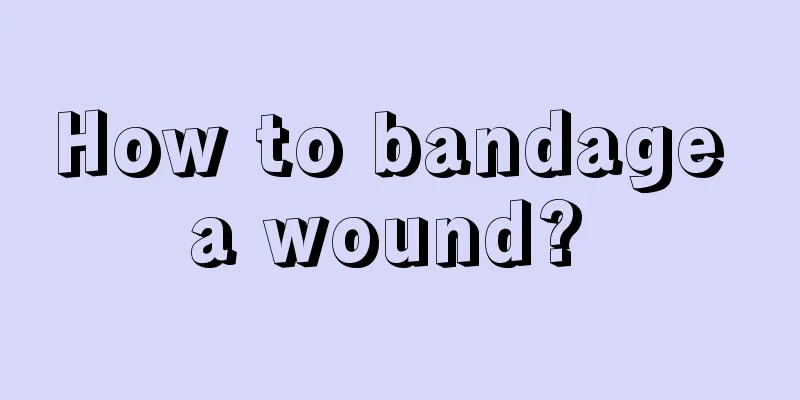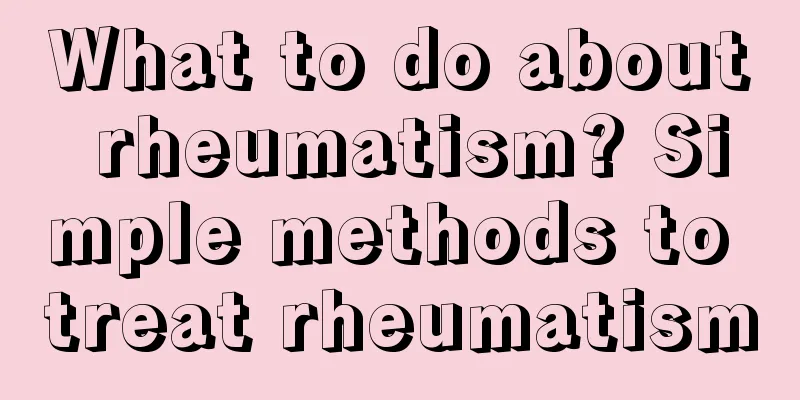Habitual clenching of teeth

|
Some people may have some habitual actions, such as habitual biting of fingers, habitual clenching of teeth and so on. Habitual clenching of teeth can actually cause certain harm to the teeth. This habit is not particularly good. It is best to find the cause and then slowly change this habit. What is the reason for habitual teeth clenching? Here we will introduce to people the possible reasons that may lead to this habit. (1) Psychological factors such as nervousness, anxiety, depression, anger, etc. (2) Gastrointestinal diseases and endocrine disorders can also cause this; (3) Excessive fatigue, those engaged in fine work, such as athletes, watchmakers, etc.; (4) Lack of trace elements in the body can easily lead to this disease; (5) Habitual bruxism caused by long-term bruxism; (6) High work pressure, physical fatigue, and long-term irregular lifestyle lead to bruxism. In addition to the above-mentioned people, people who are introverted, emotional, and have the habit of chewing things in their mouths are also prone to bruxism. Common causes in children: 1. Intestinal parasitic diseases, especially intestinal ascariasis, are quite common in children; 2. Gastrointestinal diseases and oral diseases; 3. Feeding children with indigestible food before going to bed may stimulate the corresponding part of the brain after the baby falls asleep, causing the chewing muscles to continue to contract through the nerves; 4. Nervous system diseases, such as psychomotor epilepsy, hysteria, etc.; 5. Mental factors such as children being emotionally excited, overly tired or emotionally nervous during the day. 6. Vitamin D deficiency. Children with vitamin D deficiency rickets will suffer from bone decalcification, muscle aches and autonomic nervous system disorders due to calcium and phosphorus metabolism disorders in the body. They will often experience excessive sweating, night terrors, irritability and bruxism at night. 7. Misaligned teeth, excessive use of the chewing muscles or chewing on one side for a long time, as well as poor tooth occlusion and temporomandibular joint dysfunction can also cause nocturnal bruxism. Moreover, children with irregular teeth often have abnormal positions of their chewing muscles. When they sleep at night, their chewing muscles often contract unconsciously, causing bruxism. 8. In addition, during the period of tooth replacement for children aged 8-11, it is easy to produce mild bruxism due to itchy gums. Mild bruxism during this period is normal. If it is more serious, it needs treatment. After this stage, it usually disappears on its own. 9. The influence of children's emotions and life patterns. Nowadays, children usually study more nervously and under great pressure. At the same time, many children watch thrilling fighting TV shows at night and play too much before going to bed. These factors can cause teeth grinding. In addition, if a child is scolded by his parents for a long time due to something, which causes depression, uneasiness and anxiety, he may also grind his teeth at night. It can be seen from this that bruxism is basically caused by some kind of disease. Some children have been grinding their teeth for a long time. Although they have received corresponding treatment, the cerebral cortex has formed a strong conditioned reflex. Therefore, the grinding action at night will not disappear immediately, and it is easy to form a habitual bruxism. In particular, although gastrointestinal diseases have improved, gastrointestinal dysfunction still exists. Therefore, the grinding action cannot be corrected in a short period of time, and a longer period of treatment must be persisted to achieve improvement. examine Involuntarily clenching your teeth during the day is clenching teeth: it is common to clench your teeth unconsciously when concentrating during the day, but there is no grinding of the upper and lower teeth. Differential Diagnosis Other types of teeth grinding: ① Teeth grinding type: Teeth grinding often occurs after falling asleep at night, which is often called nocturnal bruxism. Patients grind their teeth or clench their teeth during sleep. Since the teeth grinding is often accompanied by a creaking sound, it is also commonly called clenching. Because it mostly occurs at night during sleep, it is also called nocturnal bruxism. Patients are mostly unaware of it and are often told by others. Because it affects others, especially spouses, it is taken more seriously. ②Mixed type: The symptoms include both nocturnal bruxism and daytime clenching of teeth. Involuntarily clenching your teeth during the day is clenching teeth: it is common to clench your teeth unconsciously when concentrating during the day, but there is no grinding of the upper and lower teeth. Mitigation methods Children aged 8-12 years old may not need treatment if the condition is relatively mild, and they should just get enough rest. In addition, parents of children with bruxism should pay attention to adjusting their children's diet and lifestyle, supplementing calcium and vitamins, eliminating various disease factors that cause bruxism, and relaxing their children's mood. They should avoid excessive excitement during the day and should not surf the Internet excessively. Relax your mind before going to bed and avoid watching stimulating movies or TV. Go to the hospital for a stool test to check for intestinal parasitic diseases (the peristalsis of parasites stimulates the nerves, causing nerve reflexes, leading to symptoms. However, now that hygiene and living conditions have been greatly improved, the chances of parasites causing such symptoms are very low). If there are worms, deworm under the guidance of a doctor. For stubborn cases, a dental splint should be made and worn before going to bed. It can temporarily relieve symptoms and prevent direct tooth wear, but it cannot remove the root. At the same time, you should try to relax mentally, eat a light and nutritious diet, and don't eat too much before sleeping. Friends who have the habit of smoking and drinking must reduce it. Eat three meals a day and have a regular life, which can help to play a good role in regulation. 1. Try to relax yourself before going to bed, especially before falling asleep. You can do some appropriate gymnastics, take a hot bath, listen to light music, etc. 2. Avoid stimulating foods and smoking, and improve the sleeping environment. 3. Try to avoid drinks or foods containing caffeine. Try to avoid things like coffee, chocolate, cola, etc. 4. Eat more foods rich in vitamins. 5. Know how to relieve stress, relax and adjust your mindset. 6. Applying hot compresses to the upper and lower jaws can relax the bite muscles and reduce the chance of headaches. 7. Maintain correct posture. Hunching over can also lead to teeth grinding. 8. Be sure to brush your teeth before going to bed and don’t eat too much for dinner. 9. Pay attention to calcium supplementation in your daily diet and deworm regularly; 10. Keep your mouth in a healthy resting state during the day, that is, keep your teeth relaxed; 11. Watch less stimulating TV dramas before going to bed and try to relax your mind. 12. Avoid excessive excitement during the day. New discovery: The brain and digestive system-related organs such as the stomach, intestines, salivary glands and chewing muscles are closely connected and influence each other. The direct cause of bruxism is autonomic nervous system dysfunction, abnormal excitement of the motor branch of the trigeminal nerve that controls the chewing muscles, or abnormal digestive system that sends wrong signals to the brain, causing the brain to mistakenly believe that it is necessary to eat and initiates the movement of the chewing muscles. At the same time, the mouth is closed during sleep, which leads to bruxism. The pathological basis is abnormal excitement of the cerebral cortex, disordered interaction between the intestine and the brain, and gastrointestinal dysfunction that causes bruxism. In the past, there was a saying that worms in the stomach caused bruxism. This is actually a misunderstanding. It is not intestinal parasites that cause bruxism, but abnormal stimulation of the intestines to the brain that causes bruxism. At the same time, mental pressure, unsatisfied mental state or mental tension can also cause teeth grinding. There is an idiom called "grinding of teeth", which is actually the involuntary teeth grinding caused by mental tension. Mental tension in sleep can also cause teeth grinding symptoms. In short, teeth grinding is closely related to a person's mental state. |
<<: Hereditary opalescent dentin
>>: How to distinguish between bony and dental causes of protruding mouth
Recommend
Can glioma be cured?
Glioma is a malignant tumor in the brain. Once th...
Beware of liver cancer without symptoms
Among digestive system cancers, liver cancer has ...
Porcelain teeth hot and cold stimulation pain
Nowadays, the beauty industry is getting better a...
When does a boy’s bone age close?
Parents all hope that their children will be tall...
Who is not suitable for using tea pillow
With the gradual improvement of living standards,...
Do people tend to feel sleepy in autumn?
We often say that we feel sleepy in spring becaus...
How long does it take to stop my teeth from feeling sore after wearing braces
Everyone wants to have a set of white and neat te...
What organ is on the right side of the chest
The organ on the right side of the chest is the l...
What are the possible causes of uterine cancer
What are the possible causes of uterine cancer? P...
Rubella virus IgG
Rubella is an acute infectious disease that is mo...
What do you need to prepare for Tibet
As people are becoming more and more interested i...
This kind of itching on the body is actually a sign of serious illness!
It is spring now, and the temperature is relative...
What are the good methods of TCM to treat liver cancer? 4 methods of TCM to treat liver cancer
Traditional Chinese medicine is now a highly reco...
How to make Cordyceps sinensis tea
Some people may be accustomed to using Cordyceps ...
What else should you pay attention to when choosing good fruits besides looking at the outside
Faced with a variety of colorful fresh fruits in ...









